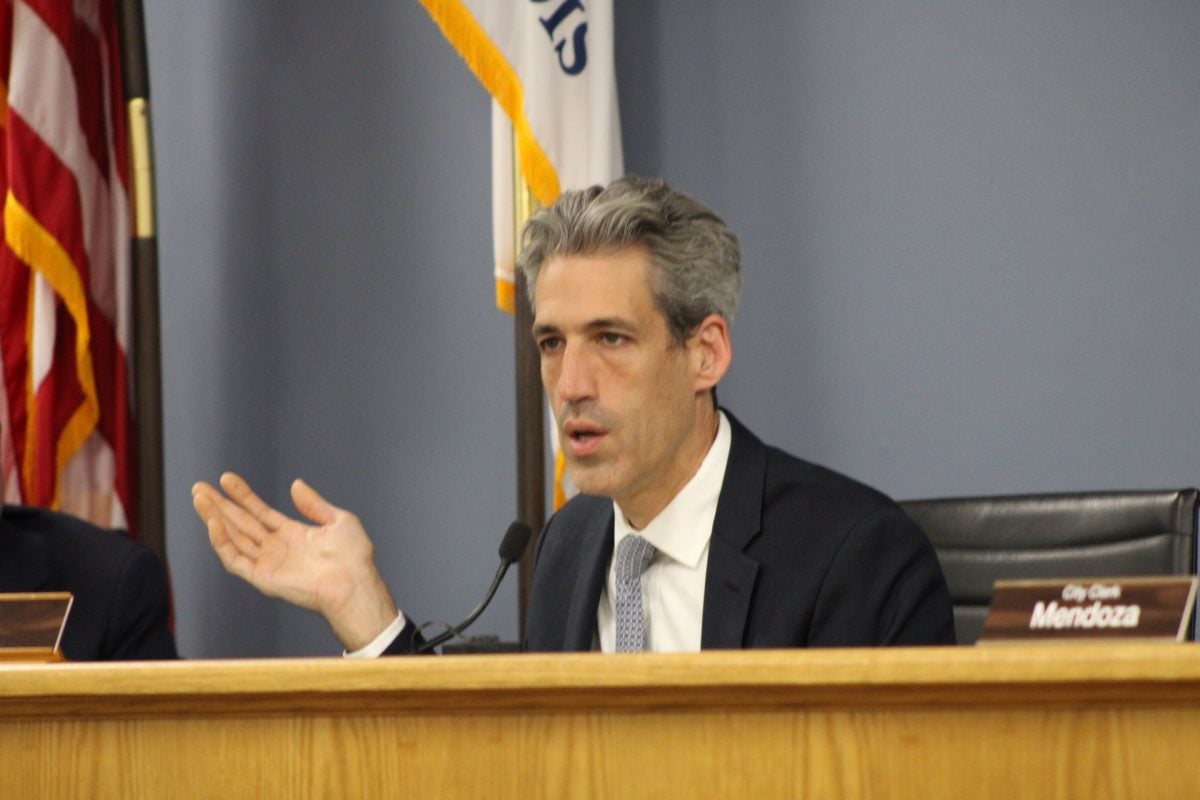Evanston City Council debated ideas for addressing projected deficits tied to the city’s proposed 2025 budget during its meeting Monday.
The General Fund, used for day-to-day expenses, will yield a deficit of approximately $12.5 million based on the projected difference between operating expenditures and revenues. If the city’s property tax levy remains flat as planned, the General Fund is forecasted to dip to nearly zero by 2027.
Among all funds, expenditures exceed revenues by approximately $23 million.
Through the coming year’s proposed budget, Evanston will generate revenue through accumulated reserves and permit revenue from Northwestern’s Rebuild Ryan Field project, according to a summary from City Manager Luke Stowe.
Councilmembers discussed a list of 38 alternative ideas for building revenue and addressing projected deficits, previously presented at the Oct. 8 Finance and Budget Committee meeting.
Alongside other councilmembers, Ald. Thomas Suffredin (6th) supported using credit card processing fees to balance the budget. He said collecting these fees and outstanding fines could serve as simple preliminary solutions.
“We should start with the lowest-impact, least controversial ones and work our way through,” he said.
Councilmembers also discussed increasing permit fees and the wheel tax as other alternate ideas. And Hitesh Desai, the city’s chief financial officer and treasurer, named the Illinois Local Debt Recovery Program as a way to collect unpaid debts for parking tickets, ordinance violations and other fines.
Ald. Eleanor Revelle (7th) told The Daily the city should not chip away at its reserves given the projected decreases to the General Fund balance and planned improvements to the Lorraine H. Morton Civic Center and Police and Fire Headquarters.
“Start now with a small increase in our property tax so it isn’t such a huge shock when we have to really deal with it in the next year or two,” Revelle said at the meeting.
The council also heard updates to Evanston’s proposed Capital Improvement Program for 2025. In a memo to the council, City Engineer Lara Biggs identified $86.5 million in necessary funds for the program. Biggs said city staff will provide a final plan to the council in early November.
Biggs previewed four key projects within the program: improving alleys, replacing uneven brick sidewalks, replacing Fountain Square and organizing public engagement sessions when planning for projects.
In a memo to the council, Biggs said there are not enough staff members to handle multiple public engagement meetings alone, increasing the need to fund outside consultants.
“We want to look at how we can strategically use consultants to best leverage the staff that we have and really create the best work that we can developing the projects that we want to,” she said to the council.
Ald. Jonathan Nieuwsma (4th) was one of several councilmembers to support integrating participatory budgeting into public engagement. He said the city could use participatory budgeting and online surveys to reduce consulting expenses.
Ald. Clare Kelly (1st) said the city’s existing boards, committees and commissions could represent the community’s needs and deliver a better product than consultants.
“It just doesn’t seem like a transparent, democratic process, what you’re suggesting,” she said.
Biggs said she was exploring ways to incorporate participatory budgeting, but the process would remain limited in the future if the overall budget did not incorporate additional funds for it.
City Council will hold a public hearing on the budget Oct. 28. City staff aims to adopt the budget at the council’s Nov. 25 meeting.
Update: This story and its headline have been updated to differentiate between the All Funds deficit and the General Fund deficit.
Email: edwardcruz2027@u.northwestern.edu
Related Stories:
— General Fund balance to decrease to near zero by 2027, if property taxes stay unchanged



















